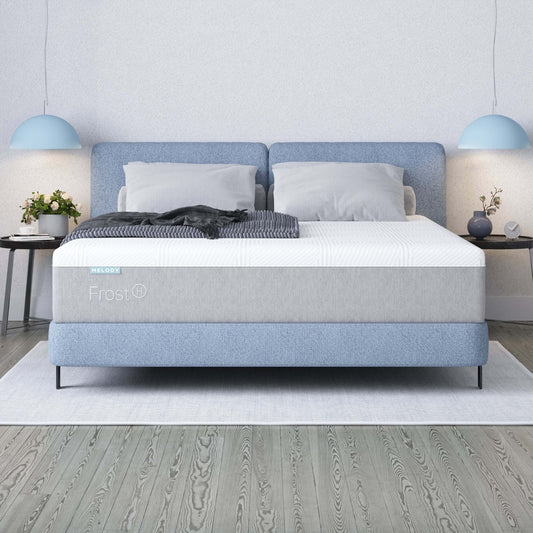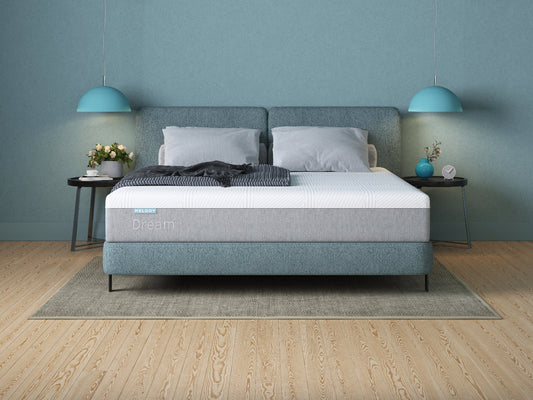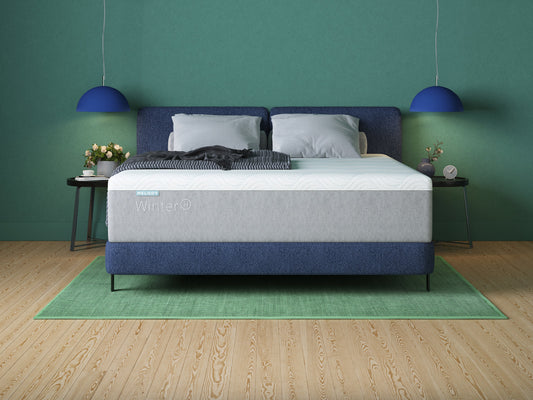When it comes to finding ways to fall asleep quickly, we all seek effective solutions. In today's fast-paced world, achieving a restful night's sleep is crucial for our overall well-being. By exploring proven strategies and techniques, we can discover how to sleep fast and improve our sleep quality. Understanding the historical context of sleep practices can provide valuable insights into optimizing our bedtime routines. Let's delve into the realm of sleep efficiency together and uncover practical tips to help us drift off to dreamland effortlessly.
Key Takeaways
- Establish a consistent sleep routine by going to bed and waking up at the same time every day to regulate your body's internal clock.
- Incorporate meditation and mindfulness practices into your bedtime routine to calm your mind and reduce stress, promoting faster sleep onset.
- Create an ideal sleep environment by keeping your bedroom dark, quiet, and cool, and investing in a comfortable mattress and pillows for quality rest.
- Improve your sleep quality by maintaining a balanced diet, avoiding heavy meals close to bedtime, and engaging in regular exercise to promote relaxation and better sleep.
- Utilize the Military Method or breathing techniques like the 4-7-8 technique to relax your body and mind quickly, aiding in falling asleep faster.
- Practice Progressive Muscle Relaxation before bed to release tension in your body and promote a state of relaxation conducive to sleep.
Crafting Your Sleep Routine
Consistent Schedule
We find that setting a regular bedtime routine and wake-up time helps us achieve better sleep quality. By sticking to a consistent schedule, our bodies naturally adjust to a healthy sleep cycle.
Relaxing Pre-Sleep Rituals
Incorporating calming activities into our bedtime routine is crucial for winding down effectively. We've discovered that reading a book or listening to soothing music before bed signals our bodies it's time to relax.
Establishing Habits
Creating a relaxing pre-sleep routine involves developing sleep hygiene habits that work for us individually. Our group has found that practicing these rituals consistently helps improve our overall sleep duration and quality.
Choosing the Right Mattress: A Pillar of Sleep Quality
Finding the right mattress is a game-changer in the quest for rapid and restful sleep. The mattress you sleep on can make or break the quality of your slumber. It's not just about the softness or the firmness; it's about support, temperature regulation, and the materials that interact with your body throughout the night.
The Melody Sleep Advantage
Melody Sleep stands out in the crowded market with its dedication to sleep innovation. Their mattresses aren't just designed; they're engineered for comfort, support, and the all-important cool factor essential in Singapore's warm climate. When you lie down on a Melody Sleep mattress, you're promised a sanctuary that aligns with your body's needs and sleep preferences.
Frost Hybrid Mattress: Your Cool Solution to Hot Nights
The Frost Hybrid mattress by Melody Sleep is a testament to the brand's commitment to quality and comfort. This mattress is specially designed with hot sleepers in mind, featuring a VentFlow™ Cooling Gel Foam and FrostWeave Cover that work in tandem to dissipate heat and promote air circulation. Its Melody Comfort Foam & AirLux™ Design provides a plush yet supportive feel, while the Targeted Support™ with 3 Zones ensures your spine is cared for throughout the night.
With the Frost Hybrid, Melody Sleep has truly considered every aspect of what makes sleep both comfortable and restorative. It's not just about the immediate comfort when you first lie down—it's about ensuring that comfort lasts all night long, helping you to fall asleep quickly and stay asleep. And with eco-conscious materials, you can rest easy knowing your comfort doesn't come at the expense of the planet.
Experience the Melody Sleep Difference
When it's time to upgrade your sleep experience, look no further than Melody Sleep's Frost Hybrid mattress. It's an investment in your health, your mornings, and every moment of rest in between. Why count sheep when you can count on the Frost Hybrid to whisk you off to dreamland?
Unwinding with Meditation and Mindfulness
Guided Meditation
We find that practicing guided meditation before bed helps us ease away distractions and reduce anxiety. By focusing on calming our minds, we prepare ourselves for a night of restful sleep. This technique allows us to let go of the day's tensions.
Mindfulness Techniques
Engaging in mindfulness techniques is another powerful way we combat stress and discomfort before bedtime. By staying present in the moment, we can let go of worries and create a sense of calmness. This practice helps us release any lingering tension from the day.
Beditation for Relaxation
When it comes to promoting faster sleep onset, Beditation has been a game-changer for us. This unique relaxation method involves incorporating calming music or soothing sounds into our bedtime routine. By immersing ourselves in peaceful melodies, we create an environment conducive to falling asleep quickly.
The Ideal Sleep Environment
Quiet Room
When it comes to achieving quality sleep, we must ensure our bedroom is a haven of tranquility. We prioritize a quiet environment by using earplugs or white noise machines to drown out disruptive sounds. This helps us drift off peacefully.
Dark Setting
Creating an optimal sleep environment involves keeping our room dark. We invest in good curtains or blinds to block out any bright lights that may disrupt our slumber. By maintaining a dark setting, we enhance our sleep quality.
Cool Temperature
To enhance our sleep latency and promote a restful night, we keep our bedroom cool. A slightly lower room temperature has a positive impact on our ability to fall asleep quickly and stay asleep throughout the night. We understand the significance of an ambient, cool room for a good night's rest.
Dietary and Exercise Tips for Better Sleep
Balanced Diet
Maintaining a balanced diet is crucial for improving our sleep quality. Avoid heavy meals close to bedtime as they can cause discomfort and disrupt our sleep patterns. Consuming light snacks like fruits or yogurt can help promote better sleep.
Avoid Stimulants
To combat sleep deprivation and poor sleep, we must refrain from consuming stimulants before bedtime. Caffeine found in coffee, tea, and soda can keep us alert and interfere with our ability to fall asleep. Similarly, alcohol may initially make us drowsy but can lead to disrupted sleep later in the night.
Regular Exercise
Engaging in regular physical exercise is beneficial for our overall health, including our sleep quality. However, it is essential to avoid vigorous workouts close to bedtime. Gentle exercises like yoga or walking can help relax our bodies and minds, preparing us for a restful night's sleep.
The Military Method Explained
Breathing Technique
We follow the 4-7-8 breathing technique to help us fall asleep fast. Inhale for four seconds, hold for seven, and exhale for eight.
Muscle Relaxation
Muscle relaxation is key. We practice tensing and releasing different muscle groups to aid in quick sleep induction.
Visualization Techniques
Visualizing peaceful scenes distracts our minds. This technique helps induce sleep by calming our thoughts.
By employing these techniques, we have noticed a big difference in how quickly we fall asleep. Many people find these methods effective due to their simple yet impactful nature.
Pros:
- Easy to implement
- Can be done anywhere
Cons:
- May take some practice to perfect
Utilizing these strategies has caused a positive impact on our sleep quality. We have found that incorporating these practices into our bedtime routine has made a significant difference in how quickly we drift off to sleep.
Breathing Techniques for Faster Sleep
Box Breathing
When it comes to breathing techniques, we can try the "box breathing" method. This technique involves inhaling for four seconds, holding the breath for four seconds, exhaling for four seconds, and then holding again for four seconds. By regulating our breath in this pattern, we can effectively calm our nervous system and relax our body, aiding in faster sleep onset.
Deep Belly Breathing
Deep belly breathing is another effective breathing exercise to consider when aiming for quicker sleep. By focusing on breathing deeply into our diaphragm, we can activate the body's relaxation response. This helps in reducing stress and anxiety levels, making it easier for us to drift off into a peaceful slumber.
Alternate Nostril Breathing
Another breathing method that can assist in promoting relaxation is alternate nostril breathing. This technique involves closing one nostril with a finger while inhaling through the other, then switching nostrils while exhaling. By practicing this method before bedtime, we can help clear the mind, reduce stress levels, and prepare ourselves for a restful night's sleep.
Progressive Muscle Relaxation for Sleep
Tensing Muscles
We start by tensing each muscle group in our body, holding the tension briefly before releasing it.
Focusing on the gradual release of tension helps us promote physical relaxation and prepare for sleep.
Relaxing Muscles
Moving through each muscle group systematically, we focus on the sensations of release and relaxation.
Handling Insomnia and Sleep Challenges
Implementing Cognitive-Behavioral Techniques
When facing sleep issues, we can tackle negative thought patterns by implementing cognitive-behavioral techniques. By challenging and changing these thoughts, we can improve our mindset towards sleep.
To begin, we should actively recognize and replace trouble-inducing thoughts with positive ones. This practice helps in reducing anxiety levels, promoting relaxation for a quicker transition into sleep.
Seeking Professional Help
If sleep issues persist despite trying various strategies, it may be beneficial to seek professional help. A healthcare provider or sleep specialist can offer personalized guidance and interventions tailored to our specific needs.
Professional assistance can involve therapies such as cognitive-behavioral therapy for insomnia (CBT-I) or the identification of underlying health conditions contributing to sleep challenges.
Keeping a Sleep Diary
Maintaining a helpful sleep diary allows us to track patterns and identify potential triggers affecting our sleep quality. By recording details such as bedtime routines, daily activities, and emotional states before bed, we can pinpoint factors influencing our sleep patterns.
Analyzing the data from our sleep diary empowers us to make informed adjustments to our lifestyle, environment, and bedtime habits for improved sleep outcomes.
Summary
After diving into various strategies to improve our sleep quality, we now have a toolbox full of techniques to help us fall asleep faster and enjoy a restful night. From crafting a personalized sleep routine to exploring relaxation methods like meditation and progressive muscle relaxation, we've learned how small changes can make a big difference in our sleep patterns. By optimizing our sleep environment, adjusting our diet and exercise habits, and trying out different breathing techniques, we're well-equipped to tackle any insomnia or sleep challenges that come our way.
Let's put these tips into action and start prioritizing our sleep health. Remember, quality rest is essential for our overall well-being and productivity. So, let's commit to implementing these strategies consistently and create a bedtime routine that works best for each of us. Here's to better sleep and brighter days ahead!
Frequently Asked Questions
How can I create an effective sleep routine?
Establish a consistent bedtime, limit screen time before bed, and create a relaxing pre-sleep routine to signal your body it's time to wind down. Prioritize 7-9 hours of quality sleep each night for optimal rest.
What are some breathing techniques to fall asleep faster?
Practice deep breathing exercises like the 4-7-8 technique or diaphragmatic breathing. These methods help calm the mind and body, reducing stress and promoting relaxation conducive to falling asleep quickly.
How does the Military Method help in sleeping faster?
The Military Method involves specific steps like relaxing your facial muscles, clearing your mind, and finding a comfortable sleeping position. By following these precise instructions, you can train your body to fall asleep within minutes.
What is Progressive Muscle Relaxation (PMR) for better sleep?
PMR involves tensing and then relaxing different muscle groups throughout the body. This technique helps release physical tension and promotes overall relaxation, making it easier to drift off into a restful sleep.
How should I handle insomnia and sleep challenges effectively?
If you struggle with insomnia, try cognitive-behavioral therapy for insomnia (CBT-I), maintain a consistent sleep schedule, avoid caffeine late in the day, create a calming bedtime routine, and seek professional help if needed for persistent sleep issues.





